- Home
- Saul Tanpepper
THE FLENSE: China: (Part 1 of THE FLENSE serial) Page 3
THE FLENSE: China: (Part 1 of THE FLENSE serial) Read online
Page 3
It was the question about her family which had caused her such distress and kept her from submitting to her exhaustion. She fully acknowledged that, and reluctantly she let the memories of her childhood in Lyon seep back into her consciousness. Experience told her that refusing to do so never ended well. It was best to let the haunting memories come, to let them possess her for a while so that they would return to the catacombs of her mind satisfied, there to quietly molder until circumstance ushered them forth again.
Her father’s stern face floated before her outside the window, like a spirit risen from the grave. At first it was just his visage. Then came the drowning sound of his voice in her ears. The feel of his hard, cold fingers on her young, bony limbs. The strict lessons. The dark bruises. But most of all, the pain.
She wasn’t aware of her body sinking to the floor. Her eyes were blind to the physical world by then, her ears deaf to all, even to the anguished moans which slipped through her lips. The dream-memory took ownership of her and held her captive for the balance of the breathless night, and the world remained innocent as ever of the torment she privately suffered.
When she woke the next morning, as the first tendrils of gray pre-dawn light stole into the room, she found herself quivering in a far corner, a blanket which she had no memory of grabbing slipping off her shoulders, and her skin blue and cold as ice.
Chapter Three
Angel heard the footsteps outside and knew from the scuffling sounds and the angry shouts that the boys left behind to guard them were being forcibly removed. But by whom? Had DeBryan’s friend shown up with his security team? How did they know where to find them?
She was already dressed, so she quickly threw her laptop into her pack and zipped it shut just as the door burst open, splintering the frame. Three men stepped inside, and their insignia marked them as soldiers of the PRC. They held their rifles out before them, ready to use. Blue surgical masks hid the bottom halves of their faces, and their hands were covered in matching latex gloves. Their eyes were cold and hard, and not just from the brisk air.
“Thanks for knocking,” she snapped at them.
If they understood, they didn’t show it.
There was a thud on the door to DeBryan’s room. People were shouting in Chinese, and she tensed up. It didn’t sound good. These weren’t his friend’s people. Angel straightened up, expecting to be grabbed and dragged out of the room. But the soldiers just stood there glaring at her and waited.
They were soon joined by four more uniformed men, who shoved the photog into the room. Somehow, he managed to stay on his feet. He’d been in the process of shaving, and the electric razor was still in his hand, forgotten. One of the soldiers snatched it away and threw it hard to the floor, where it buzzed until it was crushed into silence beneath the heel of a black leather boot.
Nobody spoke for several long seconds. DeBryan gave her a questioning look, asking her if she was all right. She returned it with a quick nod and turned her attention back to the soldiers.
A moment later, an eighth man stepped in. He wore dark slacks and a tan woolen overcoat, but no mask. His hands were tucked inside the coat’s deep pockets. Finally, the interrogation began, though not by him. He stood back against the wall, away from everyone else, and watched and listened.
The soldier’s English wasn’t very good, and his inability to communicate effectively coupled with their own inadequate responses seemed to quickly frustrate him. Angel got the impression it was all a part of some script, but to what end, she wasn’t sure. She kept her eyes on the man in the back to see how he reacted. When she showed the soldier her passport, he snatched it from her hand and handed it to the soldier standing beside him. She quickly lost track of it as it made its way around the room.
“And you?” he snapped at DeBryan. “Where identification?”
“Next door, in my room. My pack’s under the bed.”
One of the soldiers disappeared for a moment, then reappeared with the photog’s backpack, which the interrogator began to sift through.
“Front pocket,” DeBryan offered. “Here, let me help—”
“Stand back!” He was shoved in the chest with the flat side of the stock of the soldier’s rifle.
The passport was located and it, too, was passed around.
“Huangxia evacuated,” the interrogator finally said. “You leave now.”
“You can’t do that!” Angel protested. “Your own government granted the visa.”
“Government say when okay and when not okay. Now not okay.”
“Why? What’s changed? I demand you tell me what’s going on here!”
But the soldier signaled the others to begin gathering up her belongings. Angel tried to stop them and received a push for her efforts. The soldiers weren’t terribly rough with her, not like the boys had been, but they were firm, all business. She quickly gave up and returned to the leader.
“I demand to know why we’re being shut out!” She grabbed his arm and he gave her a dark look before shaking her off. He offered no further explanation.
Throughout the entire interrogation, the man standing in the back had not moved or spoken a word. His face hadn’t changed at all. But now he stepped forward, and the soldiers moved aside for him, making a wide aisle as if they were afraid to touch him. “Thank you, Chief Sergeant Zhang,” he said, addressing the soldier-interrogator. He turned to Angel. “What is going on here, Miss de l’Enfantine, is that—”
“Missus.”
He tilted his head slightly in acknowledgment. “I beg your pardon.” Though he appeared to be Chinese, he spoke without a trace of accent. “My dossier indicates that you were divorced from your husband.”
“Separated,” she corrected, before she could stop herself. She felt her face grow red. “What dossier? Why are you checking up on me? And who are you?”
“All will be known in due time.” There was a twinkle of amusement in the man’s eyes. “But for what it’s worth, my name is Cheong. You may call me Alvin.”
“Never heard of you.”
“I’m not surprised. In the grand scheme of things, I’m a nobody.” He shrugged. “Nobody important, anyway.”
“I doubt that.”
“I can assure you, Missus de l’Enfantine, that in the long run, it won’t matter who I am. The more immediate concern is actually who you are.”
“A reporter. Investigative reporter. And we are here by the graces of the UN and the World Health Organization to find out what the hell is going on here!”
“Well, yes, and in that regard, I can also assure you that Huangxia will be unable to provide you with answers to your questions.”
“I’ll decide what questions to ask and whether they’ve been answered.”
He sighed. “These soldiers don’t want to have to force you to leave, but they will if it comes down to it.”
“Under whose orders? Yours?”
He looked genuinely surprised at this, actually let out a startled laugh. “Me? No.”
“What are they hiding here?” She glared at a couple of the soldiers in turn, and they shifted uncomfortably, but they refused to avert their eyes.
“I can understand the optics. It appears that something is being concealed here, and maybe it is, but it isn’t what you think.”
“What exactly do we think?” DeBryan challenged. “The Chinese government is—”
Cheong waved his hand dismissively. “You have only just arrived yesterday, Mister DeBryan. I, on the other hand, have been following the situation here for weeks, and I can assure you that these men here aren’t hiding some government secret.”
“This isn’t right!” Angel cried. “The media has a right to be informed.”
Cheong exhaled noisily and frowned at her, cutting her off. “Until we fully understand exactly what it is we’re dealing with, the media—”
“The media’s job is to investigate and report!” She threw her hands up in exasperation. “Seems simple enough to me. There was a
natural disaster, an earthquake followed by a tsunami. Other islands in the region were affected, and rescue and recovery efforts have been ongoing elsewhere. But not here. Why not? From what I saw, thousands have been killed or died afterward, their bodies left to rot in the streets, in the rubble. There has been no attempt to—”
“Missus de l’Enfantine, I can assure you that there has been a response.”
“Not that I can see! No restoration of power and water, no relief. We were supposed to rendezvous with an International Red Cross team.”
“Which was pulled back.”
“What the hell for? The few survivors left here are suffering terribly. I saw them. Cholera is a very real threat. You don’t need a medical degree or tests to know that dysentery, dehydration, and starvation are all spreading like wildfire among those who managed to avoid drowning. Hundreds have died in the past three weeks, people who survived the wave. These deaths were preventable!”
Mister Cheong raised his eyebrows at her. “They were already dead.”
“Liar!”
He shrugged. “It sounds like you’ve already made up your mind about it. If that’s the case, then what more do you need? Go and report your conclusions, just as you have described. Let the world condemn the PRC government for their failure. But if you do so, the truth will never be known.”
She opened her mouth in surprise, then shut it again.
“You seem convinced that you know better,” DeBryan said. “What is the truth, then?”
“I can’t answer the what,” the man replied. “Not just yet. But I can tell you the where. And it’s not here. You’ll have to travel to the mainland to find answers.”
Angel narrowed her eyes. She thought she understood what he was implying. The truth would be found not in the starving, diseased faces of the casualties here. Rather, he was encouraging her to go to Beijing, to the seat of the government, where she would undoubtedly get lost in a sea of paperwork, tangled up in bureaucratic red tape, and blinded by misdirection. Did he think she was so stupid? But she wouldn’t fall for it. She was a field reporter, and she wasn’t going to leave until she was satisfied she had first exhausted all she could here.
Cheong checked his watch. “It’s time to leave.”
“Those boys,” she said, trying again, “they took our cell phones and my partner’s camera.”
“They will be returned. But I’m afraid these soldiers will have to erase any pictures you may have taken.”
“But—”
“I’m sorry, but those are the rules. I have no say in the matter.”
“If you’re not with the army, who are you with?”
He hesitated only slightly before answering. “A group called 6X. We’re private. So, like you, I am here by the government’s good graces. But also like you, they chose to cut short my stay here. It’s only because I promised to collect you two that they granted my request for an extension.”
“Well, I’m sorry to have to make you break your promise to the government.”
He smiled, as if he’d expected her to say exactly that.
“Those boys out there need medicine,” she said, still stalling. “They’re sick.”
“We find them,” Sergeant Zhang snapped. “We take care of them. You no worry.”
But there was something in the way he said it, something in his eyes and the tone of his voice, that Angel didn’t like. “How will you take care of them?” she asked.
“You no worry,” he repeated.
Mister Cheong stepped forward and faced the soldier. “Give them a few minutes to gather their belongings. Then we’ll caravan back to the dock.”
He gave them a brisk nod, told them he’d ride back with them, and left the room.
They formed a line — two soldiers in front, two between her and DeBryan, and three bringing up the rear — and they marched down the unlit emergency stairs in the corner of the hotel. The men kicked aside loose debris that had been washed into the stairwell. They didn’t speak — refused to speak — even as Angel demanded answers.
She wracked her brain as they descended. She tried to remember if she’d ever heard of a group called 6X. Who were they? What were they about? Clearly the man had more influence over the soldiers than he tried to impress upon them. The men obviously deferred to him, despite his claim to the contrary.
But she came up with nothing.
She saw him standing off to one side in the destroyed hotel lobby, a lit cigarette in one hand and his phone in the other. Both hands were gloved, but not in blue latex as were the soldiers’, rather in black leather. His back was turned, and he was speaking to someone. He didn’t acknowledge them as they passed, or the noise of their feet crushing the glass of the shattered lobby windows. He just kept right on talking in some language that was neither English nor Chinese as they pushed out through the empty frames of the front doors and made their way into the bright morning sunlight. It sounded Greek.
The fullness of the smell hit them almost immediately, bringing tears to their eyes and forcing them to cover their mouths and noses with their elbows. Several soldiers, also dressed in masks and gloves, were standing in a circle beside an army vehicle a couple dozen meters away, one with a massive track. Protruding out the front was a beveled plow. One of the men broke off and jogged over to them. He handed Sergeant Zhang some objects in a clear plastic bag, who held them up for Angel and DeBryan to see. “Is these belong to you?”
They nodded. The bag was opened and inverted. Both phones clattered to the ground and were crushed into the gravel. No apologies were made, no explanations offered.
“What about my camera?” DeBryan asked. He didn’t look very hopeful.
Sergeant Zhang turned and spoke to the other soldier in Chinese, who nodded and jogged back. “They will find and return. Now go.”
“Tell them they don’t have to break anything,” DeBryan said. “I’ll give you the memory cards.”
Sergeant Zhang grunted, but didn’t relay the message. He gestured toward a second army truck, also tracked instead of wheeled, and indicated that they were to climb aboard. The tailgate was unlatched and lowered. A soldier stepped up and pulled the flap away, revealing bench seats running the length of the bed. Two more PLA soldiers stood sentinel, one on either side of the truck, and watched them approach with wariness in their eyes. All of them wore masks and gloves.
“My apologies for the rough transport,” Mister Cheong said, startling them with his sudden appearance at their side. He climbed into the bed of the truck and reached down for Angel with his gloved hand. After a moment’s hesitation, she thrust her pack up at him, then climbed aboard without his assistance.
The two reporters chose to sit on the bench opposite their guard, for that’s what he seemed to be, and were flanked by soldiers. He sat alone. “The ride is going to be bumpy,” he warned, and indeed it was. The roar of the engine and the sound of the debris being crushed beneath them made talk impossible, so they gripped the hard wooden rails of their seats and held on, gritting their teeth and watching out through the back as the vehicle bucked beneath them.
Soon after departing, Angel thought she heard a series of gunshots — not the rapid fire sound of a machine gun, but several distinct pops. She counted a half dozen, though there were likely more. But when she looked over at the others in alarm, none seemed to have noticed.
Chapter Four
Estranged.
It had always seemed such a horrid word to Angel, full of negative innuendo and outright accusation. The French equivalent, éloigné, meant literally driven away, and she supposed that much of it was true. She had driven David away with her paranoia.
They had been married two and a half years before separating. More than enough time for him to become aware of the darkness that clung to her. Invisible during their whirlwind courtship, it only became apparent afterward, as if the mind’s eye took time to adjust to a different light, or the act of wedding caused a shift in the psychic spectrum. Ever since lat
e adolescence, the darkness drove a wedge between her and anyone she ever spent any amount of time with, not just him. But after they met, she had fooled herself into thinking that maybe this time would be different, that she had changed because of him. She had never met anyone so passionate, so brilliant.
The day he moved out, he told her he still loved her, but that he couldn’t live with her, with her mood swings, her obsessions. He’d been threatening it for the previous six months, since Jacques moved back into the house with them. He told her, as if he weren’t aware of the irony, that her family estate in Lyon was tearing them apart. Hadn’t she’d resisted his pleas to move there in the first place? Hadn’t he ignored her, even patronized her?
And then, just as Jacques needed her, he insisted that they move back to the States. It was the only way to save the marriage, he told her. So she went, and he’d been wrong because she hadn’t changed. Lyon still drew her to it, and she could not resist its pull.
Of course, her friends misjudged the situation, jumping to the wrong conclusion that David had used her to gain access to her family’s money. But it had been her idea to invest in his fledgling tech company, not his. It was she who had used him, hoping he could somehow help her to sever ties with her own past.
A year ago, on the advice of a lawyer whom David had hired for his company and then soon afterward fired for his poor advice, he had filed divorce papers. He admitted later that it had been a mistake and never pursued the case. Neither had she. The paperwork was a matter of public record, which is probably why Cheong had misconstrued their relationship. It made her wonder, as they rode in the back of that truck through the wreckage of the island, why he’d checked up on her like that. What was his interest in her? What was this dossier he had? What more did he know about her?

 Open Wide
Open Wide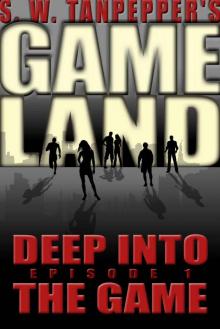 Deep Into the Game: S.W. Tanpepper's GAMELAND (Episode 1) (Volume 1) (S. W. Tanpepper's GAMELAND)
Deep Into the Game: S.W. Tanpepper's GAMELAND (Episode 1) (Volume 1) (S. W. Tanpepper's GAMELAND)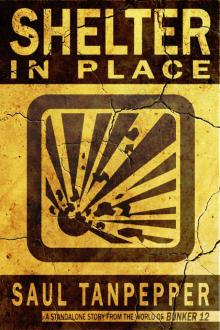 Shelter in Place: A short story from the world of BUNKER 12
Shelter in Place: A short story from the world of BUNKER 12 Iceland: An International Thriller (The Flense Book 2)
Iceland: An International Thriller (The Flense Book 2) GAMELAND Episodes 1-2: Deep Into the Game + Failsafe (S. W. Tanpepper's GAMELAND)
GAMELAND Episodes 1-2: Deep Into the Game + Failsafe (S. W. Tanpepper's GAMELAND)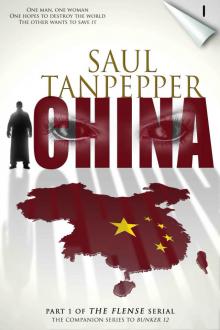 THE FLENSE: China: (Part 1 of THE FLENSE serial)
THE FLENSE: China: (Part 1 of THE FLENSE serial) S.W. Tanpepper's GAMELAND, Season One Omnibus
S.W. Tanpepper's GAMELAND, Season One Omnibus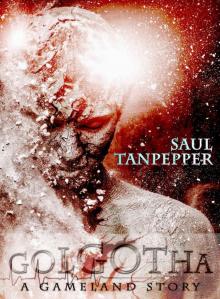 Golgotha: Prequel to S.W. Tanpepper's GAMELAND series (S. W. Tanpepper's GAMELAND companion title Book 1)
Golgotha: Prequel to S.W. Tanpepper's GAMELAND series (S. W. Tanpepper's GAMELAND companion title Book 1)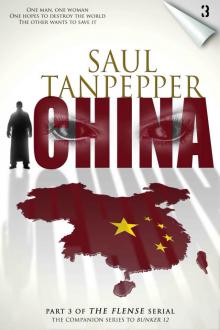 THE FLENSE: China: (Part 3 of THE FLENSE serial)
THE FLENSE: China: (Part 3 of THE FLENSE serial)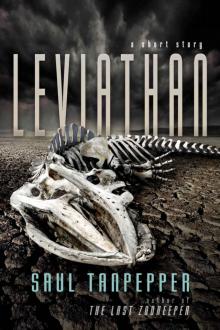 Leviathan: A Short Story About the End of the World
Leviathan: A Short Story About the End of the World Insomnia: Paranormal Tales, Science Fiction, & Horror
Insomnia: Paranormal Tales, Science Fiction, & Horror Velveteen
Velveteen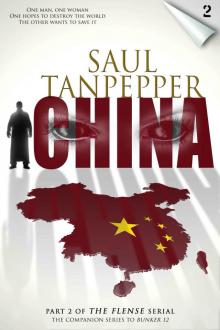 THE FLENSE: China: (Part 2 of THE FLENSE serial)
THE FLENSE: China: (Part 2 of THE FLENSE serial) Deadman's Switch & Sunder the Hollow Ones
Deadman's Switch & Sunder the Hollow Ones